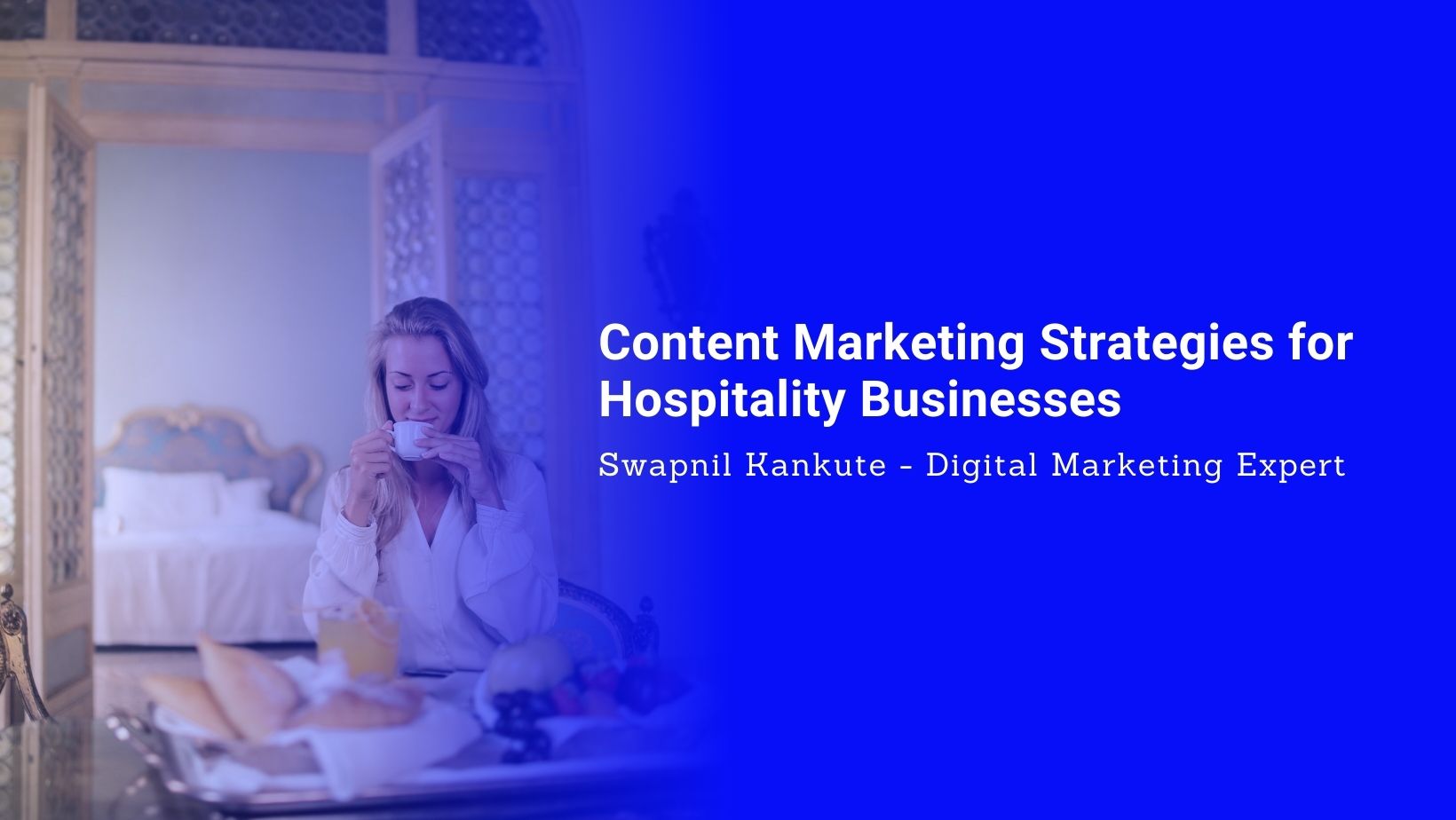In the hospitality industry, effective content marketing can differentiate your brand, engage potential guests, and drive bookings. By providing valuable and relevant content, hospitality businesses can foster relationships with their audience and establish themselves as trusted sources of information. This blog explores key content marketing strategies specifically designed for hospitality businesses.
Table of Contents
ToggleWhy Content Marketing Matters in Hospitality
- Builds Trust: Providing valuable content helps establish your brand as an authority in the hospitality space, building trust with potential guests.
- Enhances Engagement: Engaging content can captivate your audience, encouraging them to interact with your brand across various platforms.
- Boosts SEO: High-quality content optimized for search engines can improve your website’s visibility, driving organic traffic and increasing bookings.
- Encourages Social Sharing: Compelling content is more likely to be shared on social media, expanding your reach and attracting new customers.
Key Content Marketing Strategies
1. Develop a Content Strategy
Creating a comprehensive content strategy is essential for success. Consider the following elements:
- Target Audience: Identify your ideal guests and understand their preferences, interests, and pain points.
- Content Goals: Define specific goals, such as increasing website traffic, generating leads, or enhancing brand awareness.
- Content Types: Determine the types of content you want to create, such as blogs, videos, infographics, or social media posts.
2. Create Engaging Blog Content
Blogs are an excellent way to share valuable information and attract potential guests. Tips for effective blog content include:
- Local Insights: Write about local attractions, events, and activities that might interest your target audience.
- Travel Tips: Provide helpful travel tips, packing lists, or guides to help guests plan their trips.
- Guest Stories: Share testimonials or stories from previous guests to highlight their experiences and foster a connection with potential customers.
3. Utilize Visual Content
Visual content is highly engaging and can convey messages more effectively than text alone. Consider:
- High-Quality Images: Showcase your property, amenities, and experiences through stunning photography that captures the essence of your brand.
- Video Content: Create videos featuring virtual tours, behind-the-scenes glimpses, or staff introductions to personalize your brand and enhance engagement.
- Infographics: Use infographics to present valuable information, such as local statistics, travel tips, or comparisons of different experiences.
4. Leverage Social Media
Social media is a powerful platform for sharing content and engaging with your audience. Strategies include:
- Consistent Posting: Maintain a consistent posting schedule to keep your audience engaged and informed.
- User-Generated Content: Encourage guests to share their experiences on social media, and showcase their posts to build community and trust.
- Contests and Giveaways: Run contests or giveaways to increase engagement and encourage followers to share your content with their networks.
5. Email Marketing Campaigns
Email marketing is an effective way to reach your audience directly. Consider these strategies:
- Personalized Content: Segment your email list based on guest preferences and tailor content to their interests.
- Newsletters: Send regular newsletters featuring updates, promotions, and valuable content to keep your audience engaged.
- Automated Campaigns: Set up automated email campaigns for new subscribers, booking confirmations, and post-stay follow-ups to enhance guest relationships.
6. Optimize Content for SEO
To ensure your content reaches a wider audience, it’s essential to optimize it for search engines:
- Keyword Research: Identify relevant keywords that potential guests might use when searching for accommodations or experiences.
- On-Page SEO: Optimize blog posts, images, and meta tags to improve search engine rankings.
- Internal Linking: Use internal links to guide readers to related content on your website, enhancing their overall experience and boosting SEO.
Measuring Success
To evaluate the effectiveness of your content marketing strategies, consider tracking the following metrics:
- Website Traffic: Monitor the increase in organic traffic and page views to assess content effectiveness.
- Engagement Metrics: Analyze social media shares, comments, and likes to measure audience engagement.
- Conversion Rates: Track the number of bookings generated through your content marketing efforts to assess return on investment (ROI).
Case Studies: Successful Content Marketing in Hospitality
- Luxury Resort Blogging
A luxury resort implemented a blog focusing on local experiences and travel tips, which resulted in a 50% increase in website traffic and bookings over six months.
- Boutique Hotel Video Marketing
A boutique hotel created a series of videos showcasing unique guest experiences and local attractions. This strategy led to a 30% increase in social media engagement and direct bookings.
Conclusion
Content marketing is a powerful tool for hospitality businesses to connect with potential guests, enhance their brand presence, and drive bookings. By developing a strategic content plan that focuses on engaging blogs, visual content, social media, and SEO optimization, you can effectively capture your audience’s attention and establish your brand as a trusted authority in the industry.
As a certified digital marketing expert, I encourage hospitality businesses to prioritize content marketing as a vital component of their overall marketing strategy. By doing so, you can create meaningful connections with your audience and elevate your hospitality business to new heights.



